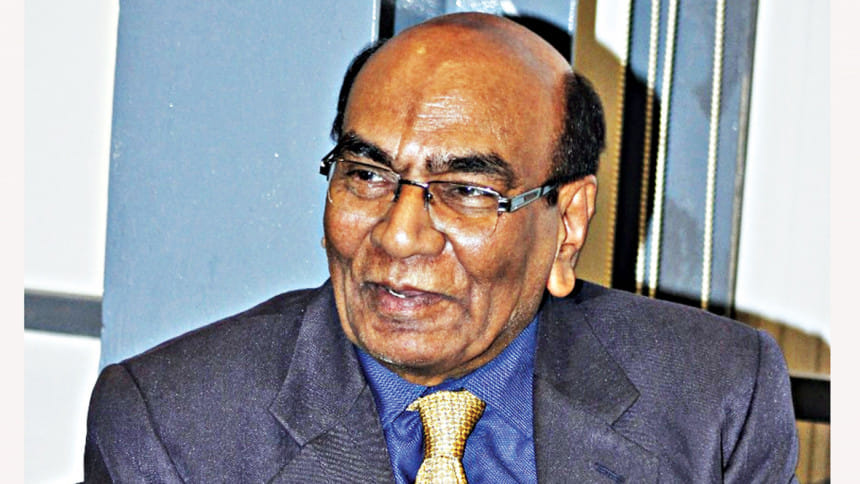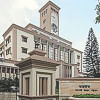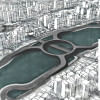Fires in city: Rajuk must be made accountable

If the Rajdhani Unnayan Kartripakkha is not held accountable for how it functions, fires will continue to happen, like the one that claimed 46 lives in Dhaka on February 29, eminent architect Tanwir Nawaz said in an interview with The Daily Star.
"Rajuk now does not answer to anybody. No one knows anything about what they are doing, whether they have skilled manpower to approve buildings, who they are reporting to about their work, or whether the process is fruitful."
He said Rajuk, entrusted with enforcing building laws and monitoring development in the capital, has to regularly review designs of all buildings in Dhaka to ensure compliance and identify loopholes.
Fire safety in the capital's buildings have once again come under the spotlight after the deadly fire at the Green Cozy Cottage Shopping Mall on February 29. The building on Bailey Road housed multiple restaurants, and there has since been a series of drives conducted by Rajuk and the city corporations to fine and close restaurants not complying with fire safety regulations and building laws.
He suggested that the government form a committee of experts -- comprising professionals like engineers, architects and planners from outside the regulatory body -- to monitor Rajuk's activities and make it accountable.
Tanwir, a former deputy chief of the physical planning, housing and infrastructure division of the first Planning Commission of Bangladesh, said such a committee would also help Rajuk do its job better.
"Rajuk will be accountable to this team and this team will be accountable to the people," said Tanwir.
Tanwir said many building owners get approval from Rajuk for a certain purpose, but later use the building for something else, often setting up restaurants or other establishments that seriously complicate safety issues.
"As building owners change it without any permission from the authorities concerned, safety measures are ignored," Tanwir added.
But Rajuk does not have the skilled manpower to monitor such a large number of buildings and check their fire safety issues, said Tanwir, who worked under renowned architect Louis I Kahn in the mid 1960s.
While giving approval to a building, Rajuk will have to ensure that proper fire safety measures are in place and they will also have to monitor those after construction, he said.
It is essential that a building over six storeys has stairways with fire doors, both dry and wet sprinklers (based on its occupancy), smoke detectors, fire alarms, fire extinguishers and hose-reel cabinets, he said.
A fire door is a door with a fire-resistance rating used as part of a passive fire protection system to reduce the spread of fire and smoke between separate compartments of a structure and to enable safe egress.
This is important not just for the building's occupants to exit safely during the fire, but also to reduce the risk of the fire spreading from one floor to the other.
However, most buildings in Dhaka do not have these fire-rated doors and stairwells, Tanwir said.
Most buildings over six storeys keep doors to stairs open, turning them into a funnel for the fire to go up through the stairwell very fast, spreading smoke everywhere and increasing the number of casualties, said Tanwir.
About the use of gas cylinders Tanwir said in many areas there is no regular gas supply through pipelines, and as a result cylinders are used. Many restaurants keep those cylinders on the stairs due to a lack of storage spaces.
"As they keep it on stairways, it not only reduces the space of the staircase but can also explode during a fire incident. We saw this during the fire incident at a restaurant at Baily Road," said Tanwir, who held positions as a senior architect of Department of Urban Affairs in the Canadian province of Saskatchewan, as well as a project planner for the city of Toronto Housing Department.
Given the shortcomings of buildings in Dhaka, he said drastic changes of these structures are necessary to ensure safety, adding that all new buildings will definitely have to comply with the fire safety plan if fire disasters are to be avoided.

 For all latest news, follow The Daily Star's Google News channel.
For all latest news, follow The Daily Star's Google News channel. 








Comments